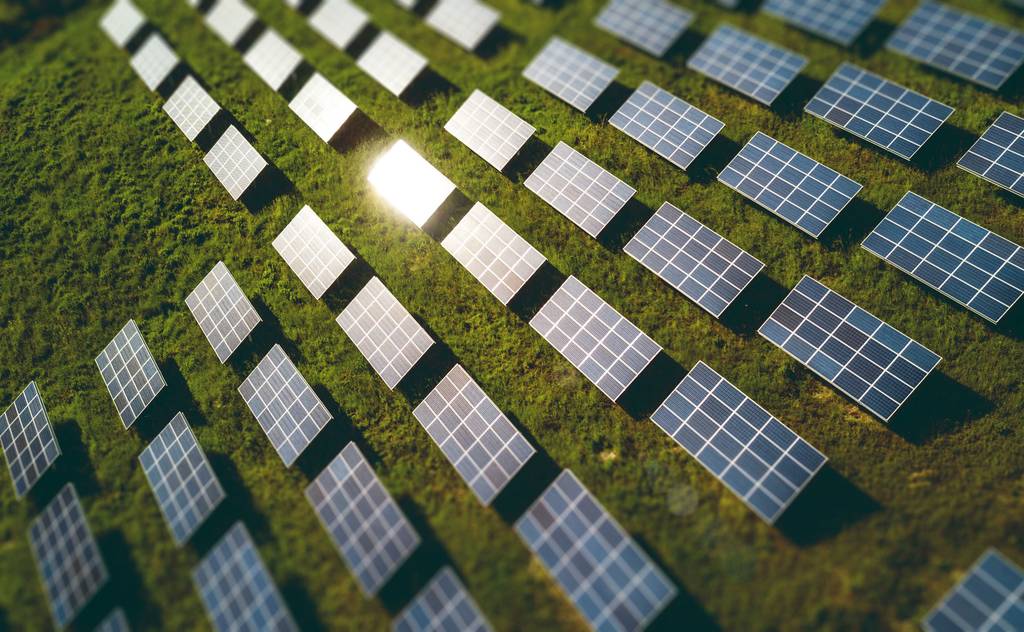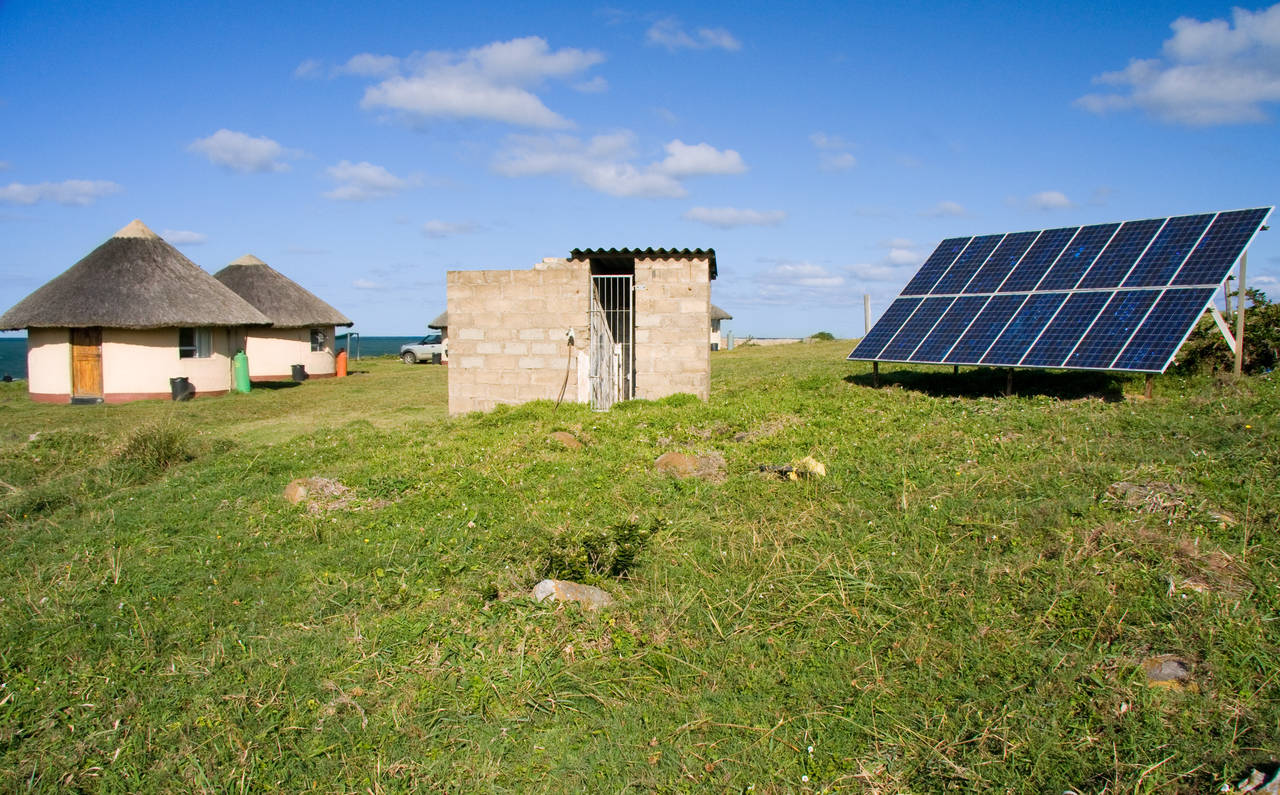West Africa Offers Huge Potential for Off-Grid Solar

Stand-alone solar power systems are being hailed as the solution to sub-Saharan Africa’s lack of electrification. Recent funding initiatives and the determination to develop strategies to develop the supply of off-grid electricity have brought not only the promise of a brighter future for West African countries but also significant business opportunities for companies wishing to enter or expand their activity in this growing renewable energy sector.
In sub-Saharan Africa, 63 per cent of the population lives in rural areas. These areas are not covered by national electricity grids, and extending the grids to provide coverage is considered too costly to be viable. The result is that large swathes of rural sub-Saharan Africa are deprived of a source of power vital to improved living conditions and economic growth.
Yet, the region is endowed with an abundance of sustainable energy sources, most notably sunshine. Attention has therefore turned to harnessing solar resources. The solution is believed to lie not in large solar-powered plants, since the distribution infrastructure they would require is inexistent in rural areas, but in distributed renewables for energy access. This is proving to be the quickest and most cost-effective means of electrifying areas with low population densities. It includes stand-alone power-generating systems designed to supply individual households and businesses.
Realising that such systems are the key to ensuring universal access to electricity, development organisations are increasingly focussing their attention on this sector. The World Bank recently decided to inject over USD 250 million into the Regional Off-Grid Electrification Project (ROGEP), piloted by the Centre for Renewable Energy and Energy Efficiency (CEREEE) of the Economic Community of West Africa States (ECOWAS). This project aims to increase access to electricity for households, businesses and public institutions through stand-alone solar systems. It covers all fifteen ECOWAS countries and four Sahelian countries (Cameroon, Central African Republic, Mauritania and Chad).
ROGEP seeks above all to create an enabling environment for the proliferation of stand-alone solar equipment such as solar lanterns, solar home systems, solar water pumps and solar milling equipment. Its sphere of action will be broad, covering market intelligence studies, technical support, policy and regulatory guidance, as well as funding arrangements through the West African Development Bank. The funding will be available not only to businesses already established in the region and interested in expanding their activities, but also to solar start-ups. Loans will also be made available to solar equipment distributors to help them purchase the equipment they lease out, as well as to productive end users of solar systems such as farms and commercial and industrial SMEs.
At national level, too, initiatives have been taken to promote wider off-grid electrification. In Benin, for instance, a power compact worth USD 375 million signed with the US foreign assistance agency Millennium Challenge Corporation (MCC) is currently being implemented. It includes almost USD 50 million for improving off-grid electricity access. In Chad, another US development organisation, the Overseas Private Investment Corporation, is injecting USD 10 million to allow FinLux Ellen, through its local subsidiary Alternaprod Tchad, to deploy off-grid solar kits in Chad.

In Togo, a project entitled “Cizo”, meaning “to light” in the local language Mina, aims to electrify an additional 300,000 households by 2022 through the installation of affordable stand-alone solar kits. The project includes the setting up of a national pay-as-you-go platform to manage solar kits, the creation of solar academies to train local technicians and installers, and financial aid for both suppliers and certain categories of users such as disadvantaged rural households, small farms and health centres. It was recently announced that the Togolese provider of solar packs Kya Energy Group had won a contract to create a solar academy in each of Togo’s five regions.
For the deployment of stand-alone solar systems, the pay-as-you-go (PAYG) option has emerged as the preferred business model. Private firms lease or sell a system and supply energy to consumers, who pay for the service provided. Relying on digital technology, PAYG lends itself particularly to markets where mobile money is in widespread use, which is increasingly the case in much of West Africa.
As the market develops, so too will business strategies. Off-grid solar companies are enriching their offers, for instance by including television in their solar package. Players are teaming up to leverage their combined strengths. Multinationals are entering the market by partnering with specialist off-grid solar companies or local businesses. Examples are the joint venture Zola EDF Côte d’Ivoire between the French energy giant EDF and the Californian start-up Off Grid Electric with the aim of installing 100,000 domestic solar systems in rural areas by 2020. Customers will make monthly payments to reimburse the installation and become owners of their equipment after three years. Likewise, Engie’s acquisition of Fenix International, a provider of lease-to-own solar systems, has enabled Fenix to expand its PAYG solar offering to five countries, including Benin and Ivory Coast.
Public-private partnerships are also being used to a similar end. In June 2018, an agreement was reached between the government of the Democratic Republic of Congo and the British company Bboxx for the installation of 400,000 plug and play solar kits in rural communities by 2020. Attention is also being turned to mini-grids to supply entire villages on a PAYG basis. A partnership agreement was recently signed between Banque Atlantique and Mali’s Renewable Energy Agency for the purpose of installing solar mini-grids equipped with batteries. Banque Atlantique will finance the project, while the Renewable Energy Agency will be responsible for identifying the target localities, setting up the mini-grids and providing the necessary training for users and for the technicians who will carry out the maintenance essential to the operation and sustainability of such grids.
With an estimated 170 million people in West Africa (43 per cent of the population) having no access to electricity, the market potential for stand-alone solar systems is huge. It is indeed estimated that over the next twenty years the market will grow at an annual rate of 4 per cent. More and more countries in the region are adopting policies and programmes to encourage this growth, thereby creating a more propitious business environment. Combining extensive experience in the energy sector with expertise in all aspects of local commercial and company law, John W Ffooks & Co is ideally placed to offer sound legal advice that will help businesses to make the most of these opportunities.
Sources
- La Tribune Afrique, L'électricité et l'Afrique en cinq chiffres
- Reuters, Off-grid power pioneers pour into West Africa
- REN 21, Renewables 2018: Global Status Report
- International Finance Corporation, Off-Grid Solar Market Trends Report 2018
- The World Bank, World Bank Provides Over $200 Million to Help Increase Access to Electricity in West Africa and the Sahel Region
- ECREEE, Regional Off-Grid Electrification Project
- Togo First, Cizo: le Togolais Kya Energy sélectionné pour implanter cinq académies solaires au Togov
- Connaissance des Energies, En Afrique, le défi énorme de l'électrification avec ou sans réseau
- Le Quotidien, Energie – Millennium Challenge Corporation : Le Sénégal décroche son 2e Compact
- Millennium Challenge Corporation, Powering Business Growth in Benin
- Afrik 21, Ivory Coast: ZECI installs solar power in 100,000 rural households
- Afrik 21, DRC: AfDB allocates $20 million for solar off-grid projects
- Afrik 21, Mali: Atlantic Bank joins forces with AER for off grid in 300 villages
- Engie, Fenix provides energy for millions across Africa
- Clean Technica, Fenix International Powers the Entire Home with Pay-As-You-Go Solar Systems
- Africa Energy Portal, Chad’s renewable energy revolution is well underway
